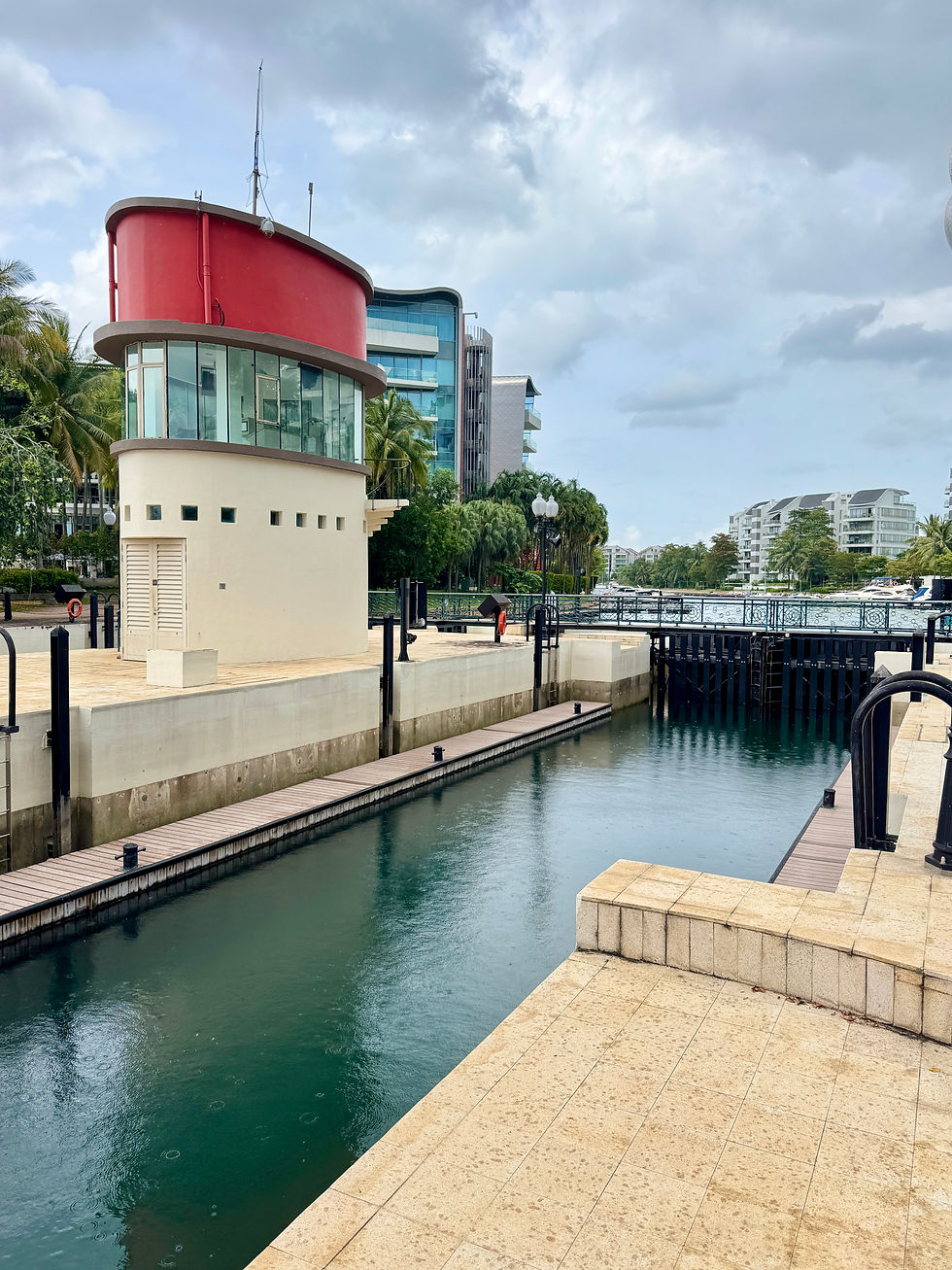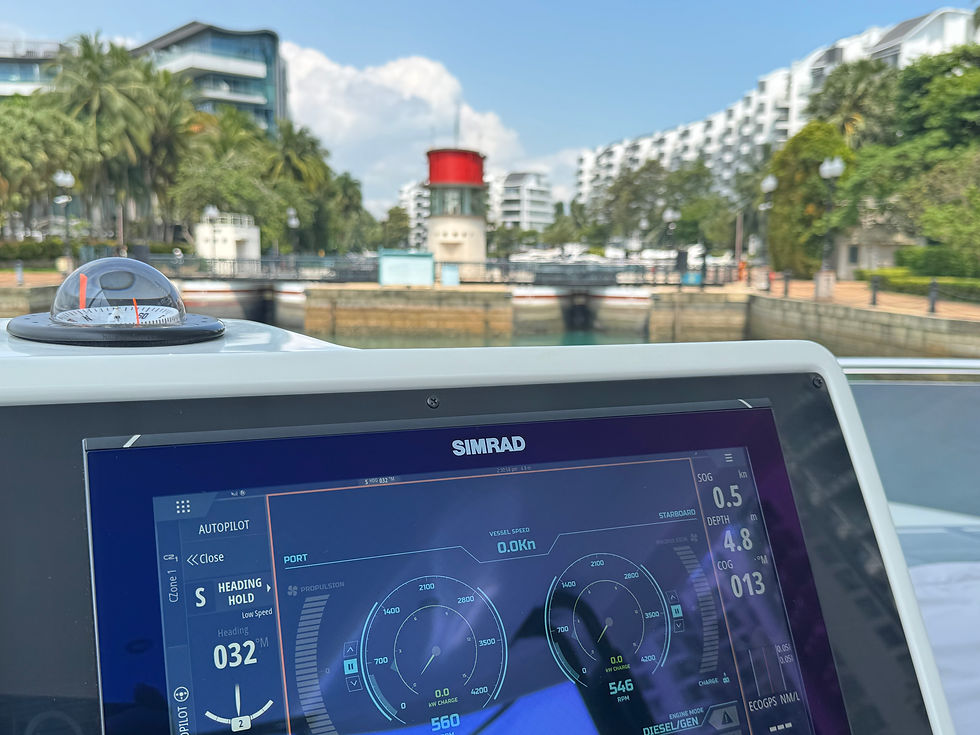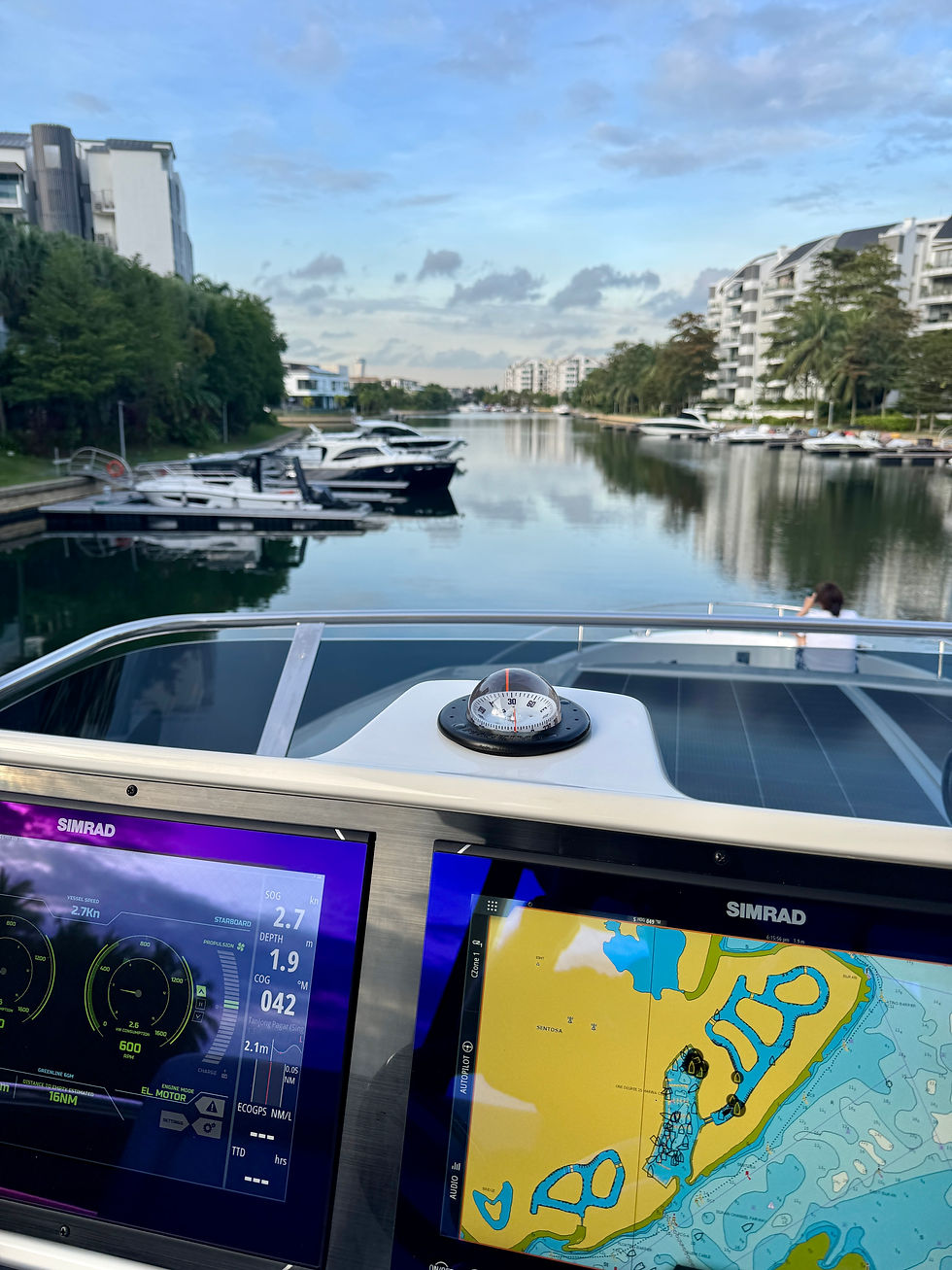How to Take a Yacht Through the Sentosa Cove Lock: A Captain’s Guide
- timalden3
- Aug 17, 2025
- 3 min read
Updated: Sep 22, 2025
Passing through the lock at Sentosa Cove can look deceptively simple, but in reality, it’s one of those manoeuvres where seamanship, focus, and preparation really show. Owners and guests notice how smooth (or not!) the experience is, and for crew, it’s a chance to demonstrate professional handling.
In this post, I’ll share a step by step breakdown with my demonstration video on going through the lock, blending technique with practical tips that I’ve learned first hand.
1. Communication First
Always radio or WhatsApp ahead before approaching, don’t get distracted trying to manage comms on the spot, focus on the approach. Have someone else handle it if needed.
2. Keep Distractions Down
Owners and guests want to see confidence and competence. Keep small talk to a minimum while staying polite. A calm, focused crew makes everyone proud.
3. Prep Before You Move
Get lines fenders and roving fender ready while still at the dock, prepare to tie both sides and brief your deck crew on what’s about to happen so no one is guessing once you’re moving.
4. Decide Docking Side Later
Don’t rush to tie off lines on one side too early. Wait until you’re closer to the lock and can judge the wind, specially if it’s head on. Always favour the downwind side.
5. Line Up and Wait
If the flood gates aren’t open yet, stand off and wait. High tide with heavy surge in particular can make timing crucial.
6. Use Gentle Nudges Only
Forward, neutral, reverse, neutral, one at a time. Always observe boat speed and keep it minimal. Control is about small adjustments, not momentum.
7. Stay in Control
Never let the yacht get ahead of you. Always be able to stop with the nudge of just one gear lever.
8. Don’t Be Tempted to Rush
Never “make a run for it.” Smooth, controlled movements are what matter.
9. Work with the Wind
Keep the bow upwind. Feel for gusts, and look at how your bow responds. Use natural pauses between gusts to commit your approach.
10. Commit Once You’re Straight
Once you’ve lined up properly, commit. If you’re very straight between the sea walls, you can use your twins briefly (1-2 secs) to get into the wider area faster, but keep movements minimal and precise.
11. Enhanced Control
Give a short reverse nudge (reverse - neutral) on both engines after to increase stopping time for even more control.
12. Check and Communicate
The best position for the deck crew is the bow where you can hear and see them. Use short communications like, "stb bow ok", "port stern in" and a simple feedback such as "thank you" works.
13. Gauge Distance
Monitor the side nearest to you allowing a bit more room opposite. You have approximnately 0.5 - 1 m either side for a 45-50' wide beam yacht.
12. Practice Without Thrusters
Always train as if your side thrusters might be unavailable. It builds skill and ensures confidence in any condition.
13 Show Courtesy
Communicate with the Cove Ranger to make your intentions clear, i.e when ready to leave the lock and thank them with a hand gesture once your stern is clear and safe.
Closing: The lock is more than just a gateway into Sentosa Cove, it’s also a stage for seamanship. With preparation, focus, and smooth execution, it can be a chance to shine.




Good boatmanship
Very skillful, show years of experience on boat handling.
You made it look easy!
Great piece Tim. I would have attempted to park like a car => boat smashed!
Well written!